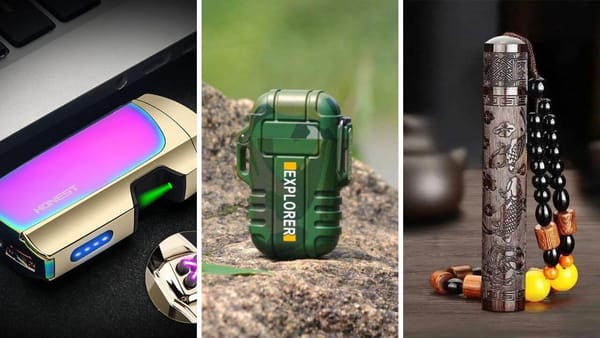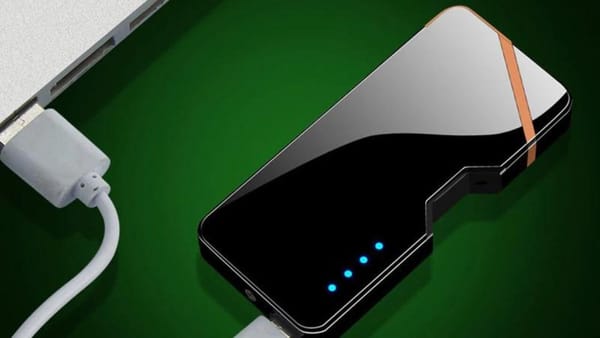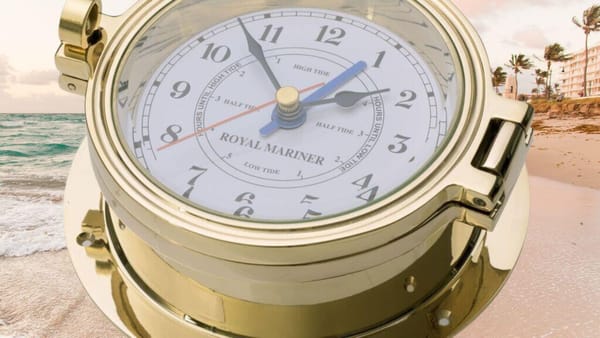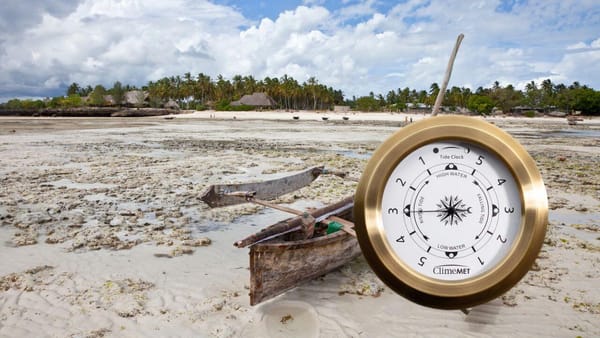Key Takeaways:
- Utility lighters come in various models, each suited for different tasks and environments.
- Safety features and fuel types are crucial factors when choosing the best utility lighter.
- Understanding the pros and cons of each type can help you make an informed decision.



Introduction
When it comes to lighting grills, camp stoves, or even candles, having the best utility lighter can make all the difference. But with so many options on the market, how do you figure out which one is right for you? This article will delve into the various types of utility lighters, their features, and what makes them stand out. Whether you're looking for a disposable lighter, a plasma lighter, or a traditional lighter, we've got you covered.
Types of Utility Lighters
Disposable Lighters
Disposable lighters are often the go-to for many people due to their convenience and affordability. These lighters are typically filled with butane and are designed for single-use. Once the fuel runs out, you simply discard them. They are perfect for those who need a quick and easy solution for lighting candles or starting a campfire.
However, disposable lighters have their downsides. They are not environmentally friendly and can be less reliable in windy conditions. If you're planning to use a lighter frequently, you might want to consider other models that offer more durability and sustainability.
Traditional Lighters
Traditional lighters, such as the classic Zippo, have been around for decades and are known for their reliability and durability. These lighters use lighter fluid and a flint to create a spark, making them ideal for lighting grills or camp stoves. They often come with a lid to protect the flame from windy conditions, ensuring that you can light your fire even in less-than-ideal weather.
One of the main advantages of traditional lighters is that they are refillable, making them a more sustainable option compared to disposable lighters. However, they do require regular maintenance, such as refilling the lighter fluid and replacing the flint, which can be a hassle for some users.



Plasma Lighters
Plasma lighters are a modern alternative to traditional and disposable lighters. These lighters use an electric arc to create a flame, eliminating the need for lighter fluid or flint. They are rechargeable via USB, making them a convenient and eco-friendly option. Plasma lighters are also windproof, making them ideal for outdoor activities like camping or lighting a grill.
While plasma lighters offer many advantages, they do have some limitations. They can be more expensive upfront and may not be as effective for lighting larger fires or in extremely windy conditions. However, their convenience and sustainability make them a popular choice among consumers.
Features to Consider
Safety Features
Safety should always be a top priority when choosing a utility lighter. Look for models with a safety lock to prevent accidental ignition, especially if you have kids around. Some lighters also come with a flexible neck, allowing you to maintain a safe distance from the flame while lighting candles or a camp stove.
Another important safety feature is a fuel window, which lets you see how much fuel is left in the lighter. This can help you avoid running out of fuel at an inconvenient time and ensure that you always have a reliable source of fire.
Fuel Type
The type of fuel used in a lighter can significantly impact its performance and convenience. Butane is a common fuel for disposable and traditional lighters, offering a clean and efficient burn. However, butane lighters can be less effective in cold weather or at high altitudes.
On the other hand, a rechargeable battery powers plasma lighters, which don't require any fuel. This makes them a more eco-friendly option, but they do require regular recharging. Consider your specific needs and preferences when choosing the best utility lighter for you.



Durability
Durability is another crucial factor to consider. Traditional lighters like Zippos are known for their long-lasting construction and ability to withstand rough handling. Disposable lighters, while convenient, are not built to last and can easily break or run out of fuel.
Plasma lighters offer a good balance of durability and convenience, with many multimodels designed to withstand outdoor conditions. However, they can be more expensive upfront, so it's essential to weigh the cost against the benefits.
Best Utility Lighters for Specific Uses
Lighting Grills
When lighting grills, you need a lighter that can produce a strong, consistent flame. Traditional lighters with a long neck are ideal for this purpose, as they allow you to reach the grill's burners without getting too close to the flame. Look for models with an adjustable flame to ensure you can get the fire started quickly and efficiently.
Plasma lighters can also be a good option for lighting grills, especially if you need a windproof solution. However, they may not be as effective for larger grills or in extremely windy conditions.
Camp Stoves
For lighting camp stoves, a lighter with a flexible neck can be incredibly useful. This feature allows you to reach the stove's burners without having to contort your hand into awkward positions. Disposable lighters can work in a pinch, but a traditional or plasma lighter will offer more reliability and durability.
Consider a lighter with a fuel window so you can easily see how much fuel is left. This can help you avoid running out of fuel while you're out in the wilderness, ensuring that you can always get your camp stove lit.



Candles
When lighting candles, especially those in deep jars or holders, a lighter with a long, flexible neck is essential. This allows you to reach the wick without burning your fingers. Disposable lighters can work for this purpose, but a plasma lighter offers a more elegant and eco-friendly solution.
Plasma lighters are also windproof, making them ideal for lighting candles outdoors. They are rechargeable, so you won't have to worry about running out of fuel, and many models come with a safety lock to prevent accidental ignition.
Maintenance and Care
Refilling and Recharging
If you opt for a traditional lighter, you'll need to refill it with lighter fluid regularly. This process is straightforward but requires some care to avoid spills and leaks. Make sure to follow the manufacturer's instructions for refilling and always use the recommended type of lighter fluid.
Plasma lighters, on the other hand, need to be recharged via USB. This is a simple process, but it's essential to keep the lighter charged, especially if you plan to use it frequently. Most plasma lighters come with a charging cable, and some even have a battery indicator to let you know when it's time to recharge.
Cleaning and Maintenance
Regular cleaning and maintenance can extend the life of your utility lighter and guarantee it lights when required. For traditional lighters, this means cleaning the flint and wick to ensure a consistent spark. You may also need to replace these components periodically, depending on how often you use the lighter.
Plasma lighters require less maintenance, but it's still a good idea to keep the electrodes clean to ensure a strong arc. Use a soft cloth to wipe away any debris or residue, and avoid using harsh chemicals that could damage the lighter.
Conclusion
Choosing the best utility lighter depends on your specific needs and preferences. Whether you opt for a disposable lighter, a traditional lighter, or a plasma lighter, each type has its advantages and disadvantages. By considering factors like safety features, fuel type, and durability, you can find the perfect lighter for your multi-purpose needs.



Summary
Utility lighters come in various types, each suited for different tasks and environments. Disposable lighters are convenient and affordable but not environmentally friendly. Traditional lighters like Zippos are durable and refillable but require regular maintenance. Plasma lighters are modern, rechargeable, and windproof, making them a popular choice for outdoor activities.
When choosing a utility lighter, consider safety features, fuel type, and durability to find the best option for your needs. Choose one that you'll use. Don't just purchase one that will end up in your junk drawer.
FAQ
What is the best utility lighter for outdoor use?
For outdoor use, a plasma lighter is often the best choice due to its windproof design and rechargeable battery. Traditional lighters with a lid can also be effective in windy conditions.
How do I refill a traditional lighter?
To refill a traditional lighter, follow the manufacturer's instructions. Typically, you'll need to open the lighter, remove the insert, and fill the fuel chamber with lighter fluid. Be sure to use the recommended type of fluid and avoid overfilling.
Are plasma lighters safe to use?
Yes, plasma lighters are generally safe to use. Many models come with safety features like a lock to prevent accidental ignition. However, it's essential to follow the manufacturer's guidelines and keep the lighter away from children.
Click here and check out our article on the best flameless lighters!

















